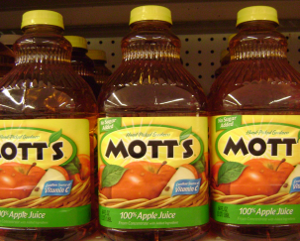
California is taking the plunge in November and putting up Prop 19 for a vote. If enacted, the proposition will legalize various marijuana-related activities, allow local governments to regulate these activities, and permit them to impose and collect marijuana-related fees and taxes. It is estimated to save tens of millions per year just by not paying to imprison marijuana users.
Not surprisingly, nine former administrators of the Drug Enforcement Administration have come out strongly against Prop 19. They are joined by many politicians and law enforcement officials who warn of rampant increases in drug use, job and school safety related issues, highway fatalities, and an overall breakdown of law and order.
But is there evidence for all that concern, or is it simply scaremongering? Portugal would seem to provide a pretty good data point. After all, in 2001 they legalized the use of all drugs. Note, they didn’t legalize the sale, cops still went after dealers, but users were instead brought before a “Dissuasion Commission.” The commission would determine if the users should be treated for their habit, fined a small amount, or let go. But drug use was no longer a criminal offense. The result turned out to be dramatic decreases in drug related deaths and AIDS transmission by needle sharing. And perhaps most importantly, Portugal has not seen a rise in drug use, nor have they become a vacation destination for drug users. Spain and Italy have introduced similar decriminalization laws, and have seen similar results.
Place after place and study after study show that criminalizing drug use is expensive and ineffective. But the War on Drugs continues unabated. Curiously, it’s one of the few things getting bipartisan support these days. Note that no one is advocating for drug-a-palooza. No one is saying drugs aren’t a problem. What is being said is there are better ways of handling the situation. But those options are off the table.
The reason is because we have declared “war” on drugs. Wars must be won. The enemy must be crushed. Yet this is not a reasonable end-goal for the drug problem. Drug use is part of the human condition. As long as people are here, drugs will be… one way or another. You can’t defeat drugs any more than you can defeat prostitution, or frankly terrorism. The best option is to cost effectively contain it. Strive to minimize it, limit its impact on the rest of society, but recognize that no amount of might is going to stamp it out completely.
Positioning the drug problem as a war prevents thinking about the problem in constructive ways. Further, a whole generation of cops and politicians have spent their whole careers fighting this war. To stop now feels like a loss to them. There is an understandable feeling their professional adult lives have been wasted. This means that any change away from the war strategy will be met with resistance from those now fighting the war.
The word “war” has a specific connotation and should be used sparingly. It should be used only when there is a specific identifiable enemy, and there is a reasonable scenario under which the enemy is vanquished. Otherwise, we’re just asking for trouble. It’s clear why politicians love to declare war on things. It’s easy to get people swept up in the emotion of marching off to crush a foe. But that backfires when it creates an expectation of an unachievable outcome, and then we’re hopelessly mired in the war mindset.
If California opts for Prop 19, I hope the rest of the country at least has the decency to sit back and observe the experiment they will have undertaken. And then be open-minded enough to learn the lessons it will doubtless teach.

